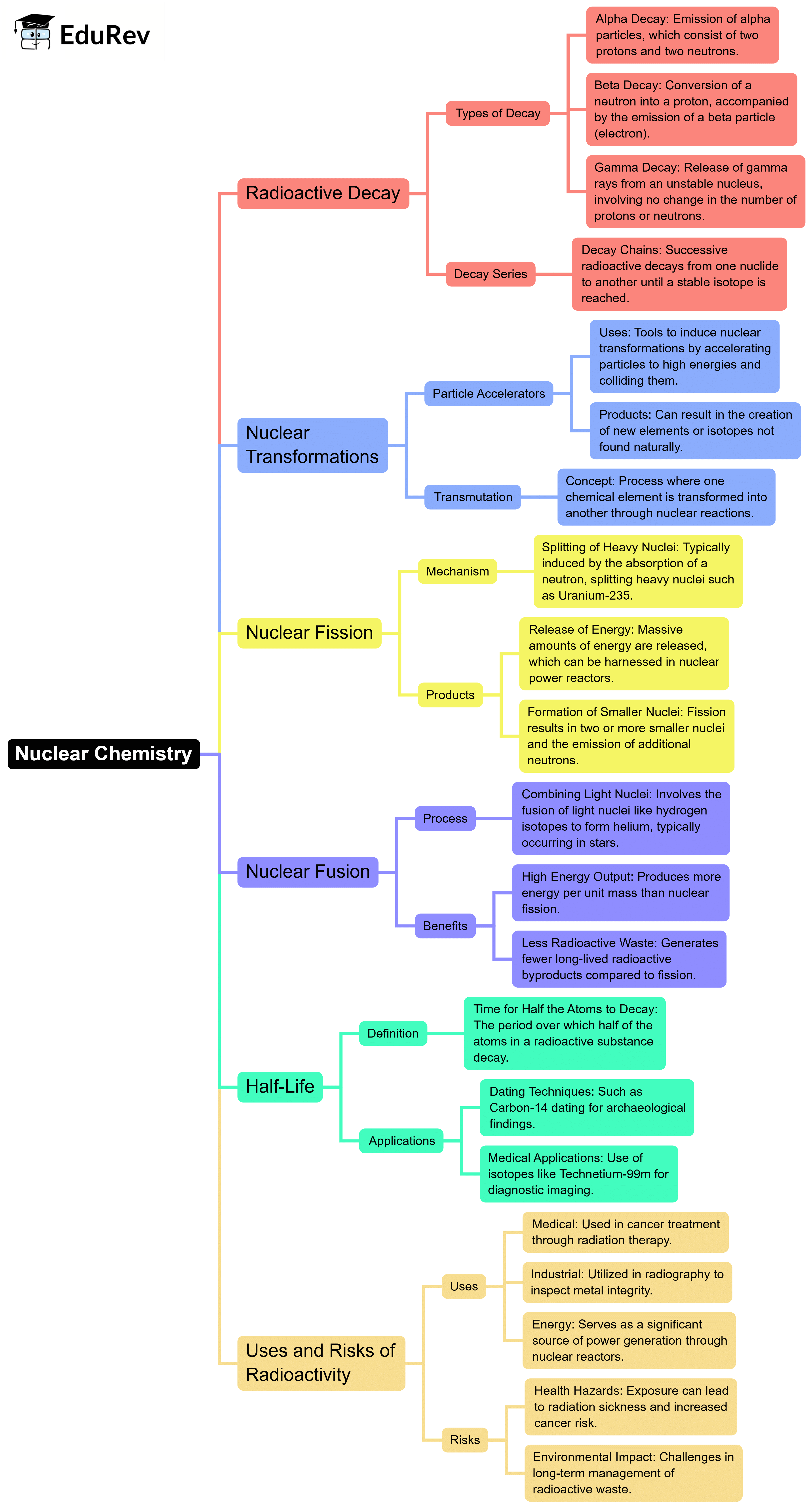EmSAT Achieve Exam > EmSAT Achieve Notes > Physics for EmSAT Achieve > Mind Map: Nuclear Chemistry
Mind Map: Nuclear Chemistry | Physics for EmSAT Achieve PDF Download

The document Mind Map: Nuclear Chemistry | Physics for EmSAT Achieve is a part of the EmSAT Achieve Course Physics for EmSAT Achieve.
All you need of EmSAT Achieve at this link: EmSAT Achieve
|
215 videos|402 docs|221 tests
|
FAQs on Mind Map: Nuclear Chemistry - Physics for EmSAT Achieve
| 1. What is nuclear chemistry and why is it important? |  |
Ans.Nuclear chemistry is the study of the chemical and physical properties of elements as influenced by changes in the structure of the atomic nucleus. It plays a crucial role in various fields, including energy production, medical applications, and environmental science. Understanding nuclear reactions helps in the development of nuclear energy, the production of radioisotopes for medical imaging, and the management of nuclear waste.
| 2. What are the main types of nuclear reactions? |  |
Ans.There are primarily three types of nuclear reactions: fusion, fission, and radioactive decay. Fusion is the process where two light nuclei combine to form a heavier nucleus, releasing energy. Fission involves the splitting of a heavy nucleus into smaller nuclei, also releasing energy. Radioactive decay is the process by which unstable nuclei lose energy by emitting radiation, transforming into different elements or isotopes.
| 3. How are isotopes used in nuclear chemistry? |  |
Ans.Isotopes are variants of elements that have the same number of protons but different numbers of neutrons. They are widely used in nuclear chemistry for various applications, such as radiocarbon dating in archaeology, tracers in biochemical research, and in medical treatments like cancer therapy. Stable and radioactive isotopes help scientists understand chemical processes and track the movement of substances in the environment.
| 4. What safety measures are taken in nuclear chemistry? |  |
Ans.Safety measures in nuclear chemistry are crucial to minimize the risks associated with radiation exposure. These include using protective gear, maintaining safe distances from radioactive materials, implementing proper storage and disposal methods for nuclear waste, and conducting regular safety training for personnel. Additionally, monitoring radiation levels and having emergency protocols in place are essential to ensure the safety of both workers and the public.
| 5. What role does nuclear chemistry play in energy production? |  |
Ans.Nuclear chemistry plays a vital role in energy production through nuclear fission, where heavy atomic nuclei are split to release a significant amount of energy. This process is harnessed in nuclear power plants to generate electricity. Understanding the chemical reactions involved in fission, as well as managing the byproducts and waste, is essential for the sustainable and safe use of nuclear energy as a power source.
Related Searches




















